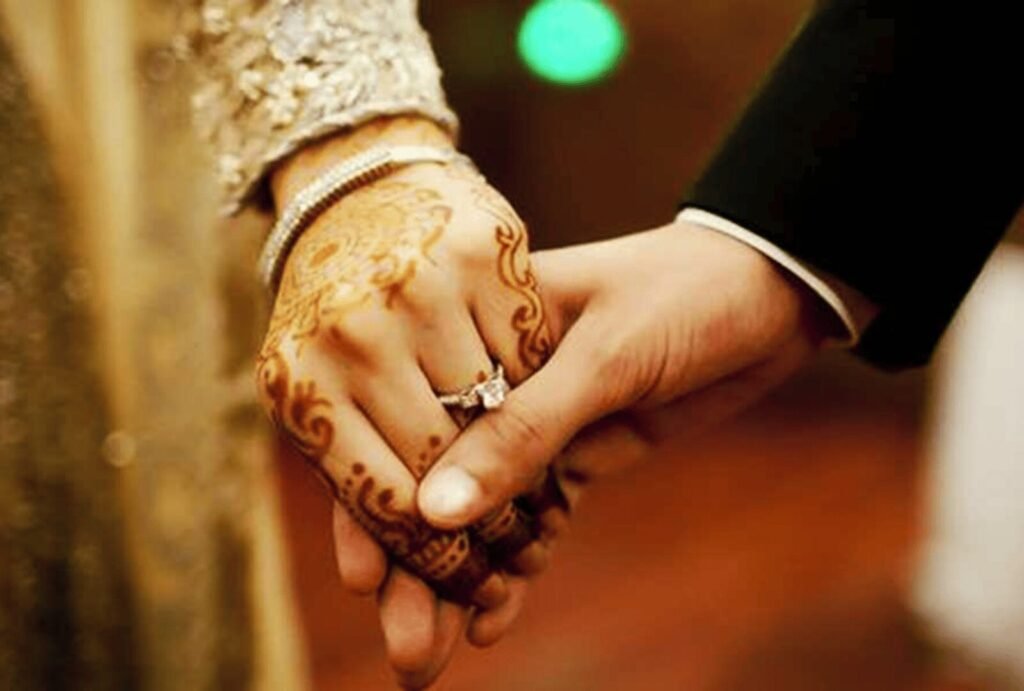Parental Consent in Marriage VS Millennial Marriage Preferences: 6 Factors to Consider
Reva Lakhmani
January 28, 2024. 4 minute Read

In the context of Indian culture, parental consent in marriage has long been a traditional norm, deeply rooted in societal values. Earlier, “arranged marriages” used to be the buzz,but now the millennials and GenZ – are shaking things up. They are gradually reshaping this landscape, seeking greater autonomy in their marital choices.
It all is arising because of the generational gap in the mindset of these two generations.
The clash between traditional values and modern preferences is evident as young Indians prioritise individual desires over familial expectations.
"
In this article, we are going to explore six factors that lead to the evolution of marriage dynamics in modern India.
6 Key-Takeaways from Parental Consent in Marriage VS Millennial Marriage Preferences
1. Changing Societal Norms
Traditional Setup v/s Personalised and Meaningful Celebration
In India, changing societal norms is playing a crucial role in the evolution of marriage dynamics. Even today, traditional arranged marriages, relying heavily on parental consent, are facing challenges from a wave of contemporary attitudes. While some are happy with existing institutions while others find it too scary.
Related Article: 7 Reasons Why Love is not Enough in a Relationship
But what do millennials want?
Today, while some millennials aspire to have destination weddings and pre-wedding photoshoots for unique and memorable experiences, some millennials are still happy with minimalist weddings. Additionally, the tradition of giving and exchanging jewellery is also evolving, with couples embracing more contemporary styles.
These changes signify a broader societal shift towards individual preferences, personal expression, and a departure from rigid matrimonial traditions in favour of more personalised and meaningful celebrations.
Well, this current generation doesn’t mind if the guest list has only 50 people.
2. Individual Autonomy
Traditional Match Matching vs Personal aspirations
The concept of individual autonomy is gaining prominence among Indian millennials, particularly in matters of marriage. Young adults are challenging the traditional practices of matchmaking. This shift reflects a broader societal move towards recognizing and respecting individual agency in personal relationships.
Now you ask, what does that mean?
Millennials are asserting their right to make independent decisions, challenging the traditional role of parents in the matchmaking process. Today, it’s not just about finding a life partner; it’s about finding someone who aligns with personal aspirations and values.
3. Education and Career Pursuits
Professional Growth vs Financial Instability
Changing perceptions of marriage are closely tied to educational and career pursuits. Millennials, driven by aspirations for personal and professional growth, are delaying marriage to pursue higher education and establish themselves in their careers.
This change highlights a trend where people seek fulfilment and stability before committing to marriage, aligning with the pursuit of personal development.
The emphasis on education and career demonstrates a desire for self-improvement and independence, marking a departure from traditional notions of early marriage. Overall, this cultural shift underscores the importance of individual aspirations and financial security in shaping contemporary views on marriage.


4. Changing Perceptions of Commitment
Shared Goals vs Societal Pressure
Changing perceptions of commitment are influencing marriage preferences in India. Millennials are redefining the meaning of commitment in relationships, emphasising emotional compatibility, shared goals, and mutual understanding.
This shift challenges the conventional idea of commitment solely based on familial and societal expectations.
Are the millennials too scared to commit and even if they are committing, what does their commitment mean?
No, millennials are not too scared to commit; instead, they are changing the way they commit.They are just redefining commitment in relationships. They now focus more on emotional connection, shared goals, and understanding each other. This means that their commitment goes beyond what traditional expectations dictated from families or society.
So, when millennials commit, it’s not out of fear, but a choice to prioritise a deep emotional bond and common life goals. Their commitment is about understanding and connecting with their partner on a personal level, rather than involving their families or other people of the society.
Related Article: 9 Engaging Companionship Activities Ideal For Couples
5. Economic Factors
Financial Stability vs Financial Ignorance
Economic considerations play a significant role in shaping marriage preferences in India. Rising individualism is accompanied by a desire for financial stability before embarking on marital commitments.
Millennials are increasingly inclined towards building a secure economic foundation, contributing to a shift in marriage patterns from early alliances to later, more financially stable unions.
What does "secure economic foundation" mean in the context of changing marriage preferences?
It implies that millennials want to ensure they (whether it’s a man, woman or any other) are financially stable before getting married. It involves having a reliable income and financial stability that provides a sense of security for the couple’s future.
6. Communication Gaps
Traditional expectations vs Modern Thinking
As societal norms evolve, communication gaps between generations become evident in the Indian marriage context. Traditional expectations such as living with parents, often clash with modern preferences, leading to misunderstandings and tensions. With Indian marriages, you are not just marrying the love of your life. You are marrying their family, too. Or, some may even argue, it’s a marriage and bond between both families.
But that’s not the case for today’s generation! We all want to have our own privacy, even if that means not involving our families sometimes.
Bridging these communication gaps is crucial for fostering understanding and acceptance of changing marriage dynamics, promoting a harmonious coexistence of traditional values and contemporary preferences in Indian culture.
On being asked for a solution for this topic,
Across the generations: Voices and perspectives on Indian Matchmaking
1. GenZ perspective
Maintaining open communication is extremely important in today’s generation. With communication, comes understanding. And that is exactly how communication gaps or misunderstandings within the family can be fixed.


2. Millennials Perspective
It’s important to encourage structured decision-making sessions where millennials and their families collaboratively discuss key aspects of marriage. At the end of the day, every millennial desires to be loved and respected by everyone in the marriage. They do understand marriages are between two families and not just between two people.
3. From GenX Perspective
Gen X (older generations) should understand and appreciate the changing societal norms. The positive aspects of individual autonomy, diverse wedding celebrations, and evolving commitment values should be reiterated to them and they should be open to evolving with time.
Final Thoughts
So there you have it!
But in all these changes, sometimes families and young people don’t fully understand each other. There’s a gap in how they talk and understand. Fixing this gap is important for everyone to be happy.
So, as India changes, the story of marriages is changing too. It’s like finding a balance between what we learned from the past and what we dream for the future. The beauty of Indian marriages is still growing, weaving old threads with new ones, making a beautiful pattern that tells the story of love and change.
Subscribe to new post
The One Liner
Useful Links
Order Related Queries
Useful Links
Order Related Queries



